“Growth and opportunity” as UK evangelical churches leave the post-pandemic crisis behind
A survey by the Evangelical Alliance shows that “overall church attendance increased by 13% between 2020 and 2025”. The number of people coming to faith has doubled, and church members are more willing to share the Christian message with others than they were before 2020.
EAUK · 08 MAY 2025 · 16:27 CET
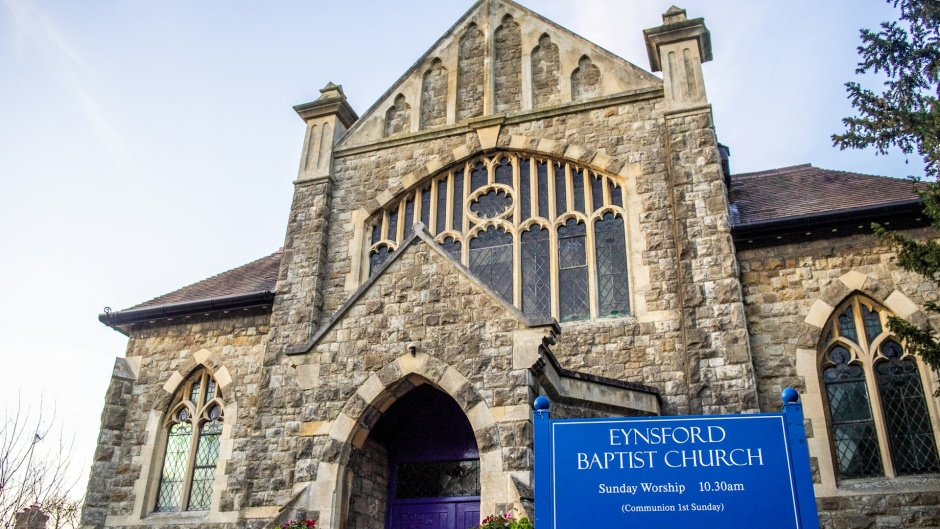
A new survey of the United Kingdom Evangelical Alliance (EAUK) shows that “the overall picture for evangelical churches in the UK is of growth and opportunities”.
“Churches have changed since they were forced to close in the pandemic”, pointed out Danny Webster, the evangelical body's head of advocacy. “For larger churches, they are growing and smaller churches are struggling, but churches of all sizes are seeing people join them”.
5 years after the pandemic
The Changing Church survey “explores the state of the UK evangelical Church five years on from the Covid pandemic”, in order to find out more about what churches are experiencing and “help other churches have confidence in sharing Jesus”.
The Evangelical Alliance surveyed 305 church leaders and 977 individuals between 29 January and 24 February 2025, about their experience of church life as well as how their habits and practices had changed, five years after the pandemic arrived in the islands.
Church attendance
The survey shows that “overall church attendance for the churches responding to this survey increased by an average of 13% between 2020 and 2025”.
However, weekly church attendance “has significantly declined since 2020”. 78% of those surveyed reported attending weekly in early 2025, compared with over 90% in the first months of 2020.
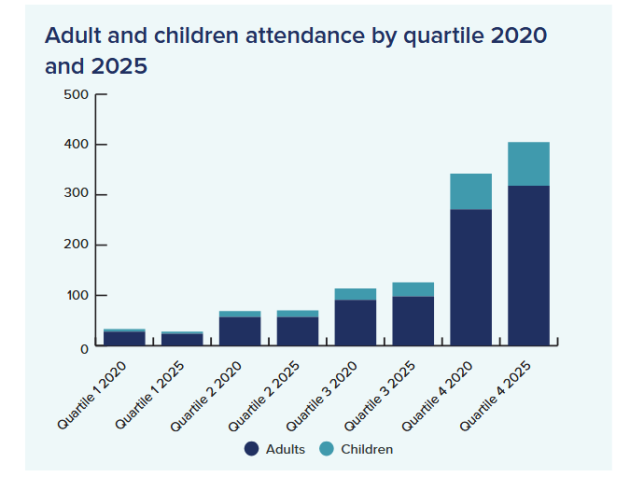
Furtheremore, the attendance to midweek meetings and “the frequency of engagement has dropped, while slightly more people report not engaging at all”, points out the report.
Regarding how long respondents have been attending the same church, the Changing Church survey says that, “over 80% has attended their church for more than 3 years, 70% for at least five years, and over half for more than a decade”.
More people come to faith
Another important finding of the survey is that “churches are seeing more people commit to follow Jesus and more openness to exploring the Christian faith".
The EAUK explains that on average, twice as many people become Christians as both before the pandemic and immediately after.
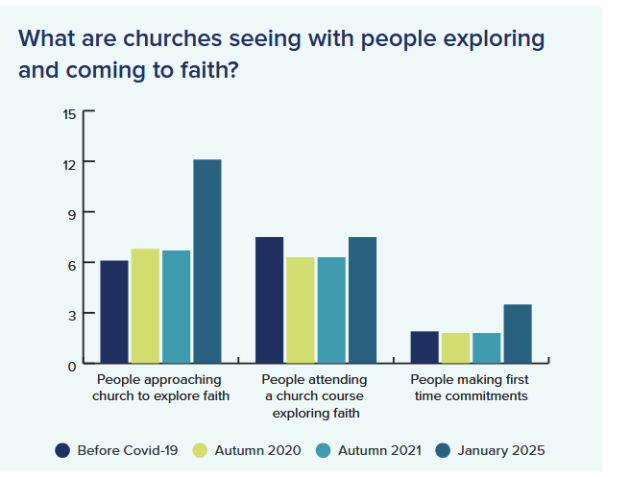
Moreover, compared to before the Covid-19 pandemic, “twice as many people” are approaching churches asking questions about the Christian faith (an average of 12 people over the past three months, up from 6 before Covid and 6.5 in 2021).
“The last five years have changed the evangelical church in the UK. What I’m seeing as I travel around the country is churces that are growing as they confidently share the hope of Jesus, and a general openness to faith”, underlined Gavin Calver, the CEO of EAUK.
Sharing the faith
When asked about sharing their faith with others, 63% of respondents said they had invited a non-Christian to some form of Christian or church-based activity, which is “a significant increase from 2021 when only 37.5% had”.
Three quarters of those surveyed “felt that they are equipped to share their faith with non-Christians”, while “nearly 20% say they are very well equipped and more than half (54%) say they were somewhat equipped”.
In adition to their testimonies and beliefs, the respondents also talked with non-Christian about current public issues such as abortion, sexuality, assited dying, migration, etc.
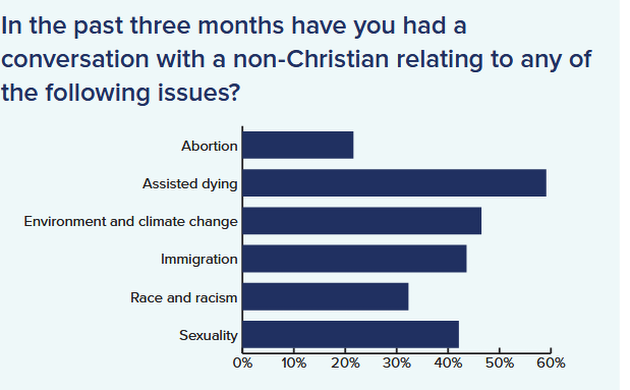
The survey shows that “recently, the assisted dying law is the issue that respondents are having the most conversations about. Almost 60% reported a conversation with a non-Christian on that issue”.
Volunteering
Acording to the survey, volunteers in the average church contribute nearly £250,000 worth of time each year.
Asked whether there had been an increase or decrease in church volunteering, church leaders were both more likely to have observed that volunteering had either increased or decreased, whereas individuals were more likely to say that their volunteering had stayed the same.
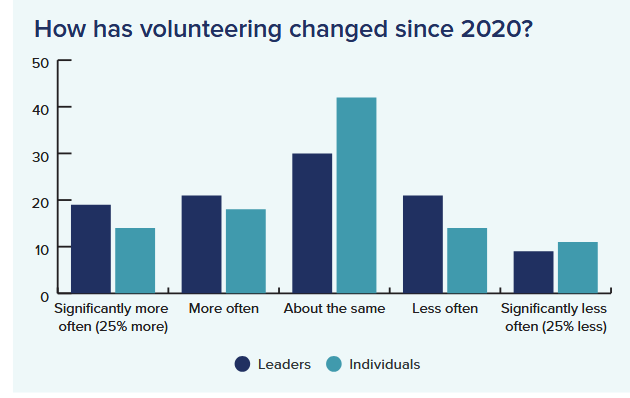
“The most common areas where churches are experiencing shortages of volunteers is with children’s and youth ministry”, says the survey.
Giving does dot keep pace with inflation
Regarding giving, the survey finds that “while more than half of churches have seen an increase in their giving, and less than one in five have seen it decline, for many churches increases have not kept pace with inflation”.
“For the smallest quarter of churches only 15% of churches have seen giving increase sufficiently, compared with 40% of the largest churches”, it adds.
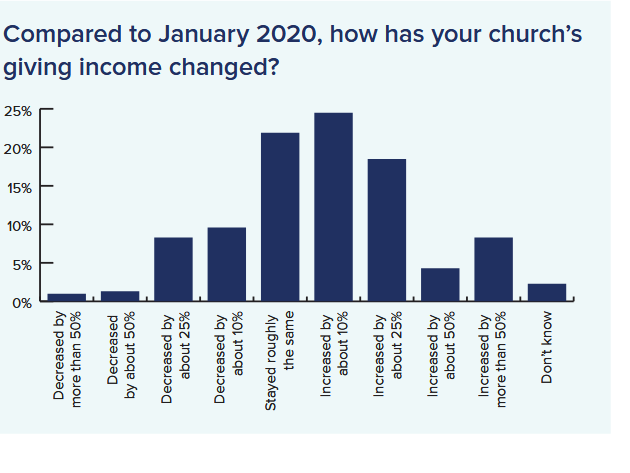
Leaders wellbeing
The EAUK also analyses the wellbeing of leaders in the last 5 years, reaching the conclusion that “the situation has improved”, with 75% “describing it as good or very good”.
The key challenges leaders identified in their work included more volunteers (36%), leadership (21%), finances (18%) and premises (17%), among others.
You can explore the full survey here.
Join us to make EF sustainable
Learn all about our #TogetherInThisMission initiative here (English).
Published in: Evangelical Focus - europe - “Growth and opportunity” as UK evangelical churches leave the post-pandemic crisis behind
